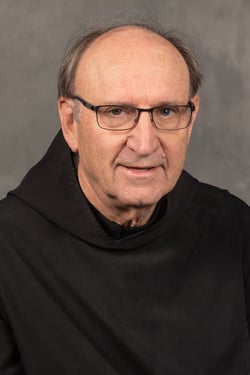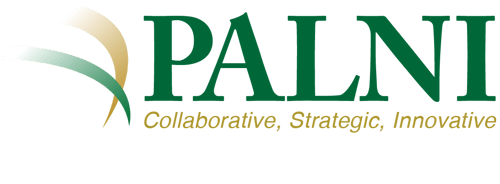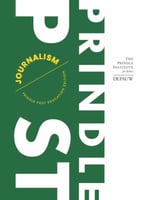The Private Academic Library Network of Indiana (PALNI) recently awarded leadership development...
Q&A with Fr. Harry Hagan: A perspective on open textbook creation
 Fr. Harry Hagan, OSB, SSD, is Associate Professor of Scripture at Saint Meinrad Seminary and School of Theology. As a faculty member at a PALNI supported institution, Fr. Harry has produced three open textbooks that are free and available to scholars worldwide through the PALNI Pressbooks publishing platform. Here, he shares his experience in teaching and creating open educational resources (OER).
Fr. Harry Hagan, OSB, SSD, is Associate Professor of Scripture at Saint Meinrad Seminary and School of Theology. As a faculty member at a PALNI supported institution, Fr. Harry has produced three open textbooks that are free and available to scholars worldwide through the PALNI Pressbooks publishing platform. Here, he shares his experience in teaching and creating open educational resources (OER).
Please share the titles of the open textbooks you have produced.
- Elements of Biblical Poetry: An Introduction to Its Craft, Language, and Genres
- Elements of Biblical Narrative: A Brief Introduction with an Analysis of the Red Sea Story
- Mighty in Battle: A Literary Study of Battle Narrative in the Ancient Near East and in the Bible
Please tell us more about your current role and the courses you teach.
I am Associate Professor of Scripture at Saint Meinrad Seminary and School of Theology. I teach the following courses:
- Biblical Narrative: Pentateuch and Historical Books
- Biblical Narrative: Prophets and Wisdom
- Psalms
- Covenant
- Story in the Deuteronomistic History
- Hebrew, Greek, and Latin Languages
I also write texts for hymns and have published over 40 hymns. I have studied poetry and also written it.
What encouraged you to produce open textbooks for your courses?
I had written Elements of Biblical Narrative during COVID-19 to replace an introduction to narrative in English literature that I had been using. Originally written as a journal article, it became too long to publish there, and the opportunity arose to publish it with PALNI. That seemed like a great solution.
During my sabbatical in the spring of 2022, I rewrote a piece that I had given to students for many years and turned it into Elements of Biblical Poetry.
Mighty in Battle is part of my dissertation. PALNI offered me an easy way to make that available to a larger audience.
Why did you choose to publish these particular open textbooks?
Elements of Biblical Narrative was written specifically for my course on Pentateuch and Historical Books of the Old Testament/Hebrew Bible. There are existing introductions, but they use examples from many different stories. This book focuses mainly on the Red Sea Story (Exodus 13:17-14:31) for its examples. This is arguably the most important story in the Hebrew Bible, and so students are focusing on an important text as they explore how narrative works in the Bible.
Elements of Biblical Poetry is a revision of a document that I have used for many years in courses on prophets, psalms, and wisdom literature. It explores the ways in which biblical poetry works rather than the specific context of those books. It covers craft, language, and genres of this poetry. In some ways it is very similar to poetry in other languages, but its use of similar and sequential parallel lines gives it a different feel.
How have the textbooks been received by students?
I have received positive feedback from the students. They are used to working with online and downloadable documents, and so these are just another accessible piece for them.
What are the biggest benefits to using OER versus traditional textbooks?
They are easily accessible and come without cost. You can’t lose them, but you don’t have to haul them around. They are there for future reference, and students can also use these books later with their own students.
What has your experience publishing open textbooks been like?
It was easy to put the books on the Pressbooks platform. Grammarly functions as the editor alerting you to the problems of proofreading. You have access to the document day and night, and you have lots of control. My institution was able to help with the design of the cover.
In what ways did your library support you in the process?
The director of the library, Dr. Daniel Kolb, made me aware of the possibility, and he has been very supportive throughout the process.
Is there anything about the process that has surprised you, or benefited you or your students in unexpected ways?
You can easily put a piece of the book on a screen in a classroom for a discussion.
What is one piece of advice you would give other faculty looking to publish their own open textbook?
Don’t wait.
Would you consider publishing more open textbooks in the future? Why or why not?
I am presently putting a translation online that courses in medieval history have students read. Today, publishers must ask how they are going to get their money out of a publication before they commit to publishing a book. Thanks to PALNI, those questions do not need to control the process.
To learn more about PALNI open publishing, visit the PALNI Press website.

.png?height=200&name=title%20crop%20-%20Open%20Guide%20to%20Data%20Structures%20mockup%206%20x%209%20(1).png)
